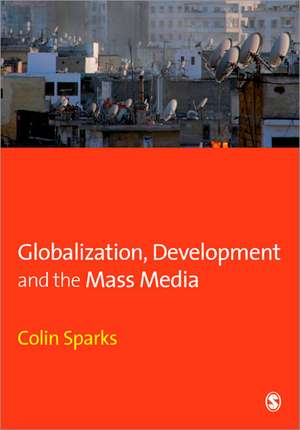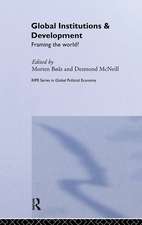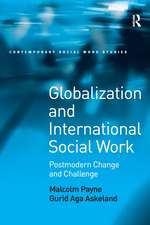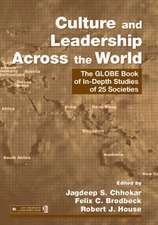Globalization, Development and the Mass Media
Autor Colin Sparksen Limba Engleză Paperback – 19 noi 2007
| Toate formatele și edițiile | Preț | Express |
|---|---|---|
| Paperback (1) | 500.79 lei 6-8 săpt. | |
| SAGE Publications – 19 noi 2007 | 500.79 lei 6-8 săpt. | |
| Hardback (1) | 1022.85 lei 6-8 săpt. | |
| SAGE Publications – 19 noi 2007 | 1022.85 lei 6-8 săpt. |
Preț: 500.79 lei
Preț vechi: 589.17 lei
-15% Nou
Puncte Express: 751
Preț estimativ în valută:
95.84€ • 98.15$ • 79.72£
95.84€ • 98.15$ • 79.72£
Carte tipărită la comandă
Livrare economică 18 martie-01 aprilie
Preluare comenzi: 021 569.72.76
Specificații
ISBN-13: 9780761961628
ISBN-10: 0761961623
Pagini: 264
Dimensiuni: 170 x 242 x 17 mm
Greutate: 0.46 kg
Ediția:1
Editura: SAGE Publications
Colecția Sage Publications Ltd
Locul publicării:London, United Kingdom
ISBN-10: 0761961623
Pagini: 264
Dimensiuni: 170 x 242 x 17 mm
Greutate: 0.46 kg
Ediția:1
Editura: SAGE Publications
Colecția Sage Publications Ltd
Locul publicării:London, United Kingdom
Cuprins
Introduction
Communicating Modernity
The Passing of Modernity
Varieties of Participation
Cultural and Media Imperialism
The Failure of the Imperialism Paradigm
Globalization and the Media
The Limits of Globalization
Towards a New Paradigm
Communicating Modernity
The Passing of Modernity
Varieties of Participation
Cultural and Media Imperialism
The Failure of the Imperialism Paradigm
Globalization and the Media
The Limits of Globalization
Towards a New Paradigm
Notă biografică
Colin Sparks is a professor at the Centre for Communication and Information Studies at the Univeristy of Westminster and Co-Editor of Media, Culture and Society.
Anna Reading is a lecturer at Southbank University and Assistant Editor of Media, Culture and Society.
Descriere
This book gives a comprehensive and critical account of the theoretical changes in communication studies from the early theories of development communication through to the contemporary critiques of globalization. It looks at the ways in which the media can be used to effect change and development, and traces the evolution of thinking from attempts to spread 'modernity' by way of using the media through to alternative perspectives based on encouraging participation in development communication. It explores the theory of media imperialism, the criticisms that it provoked, and its replacement as the dominant theory of international communication by globalization.












